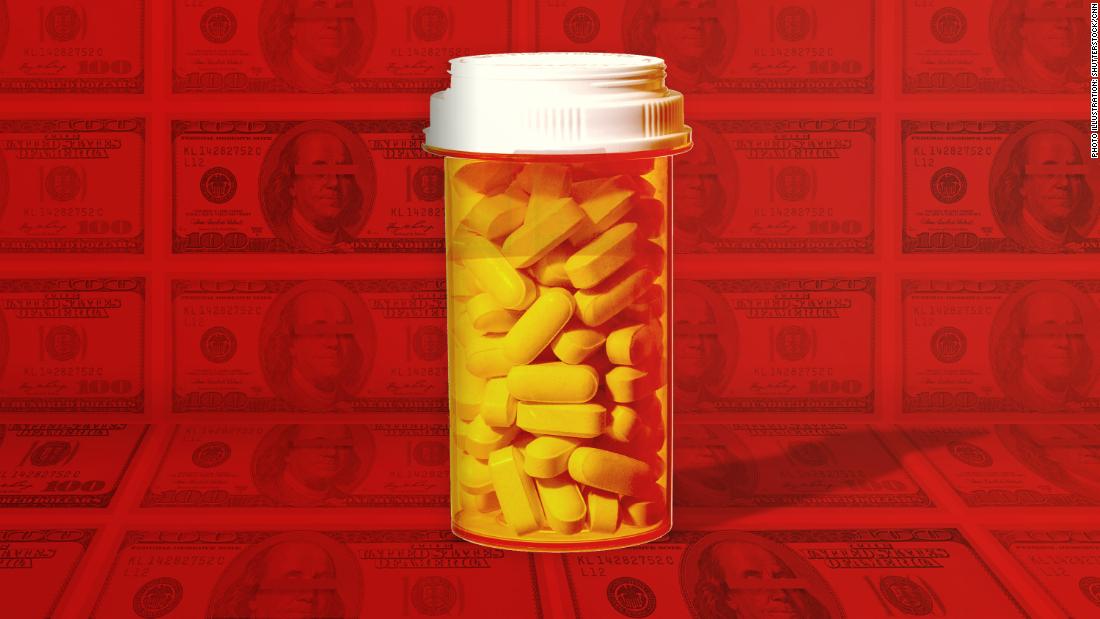
(CNN)Drug makers hiked prices on hundreds of medications for 2020, just weeks after the Trump administration advanced efforts to curb rising drug costs by importing medicine from abroad but legislation stalled in Congress.
The prices of some commonly prescribed brand name drugs are rising even more. The price of Bristol-Myers Squibb’s Eliquis, a blood thinner, is going up 6%, while AbbVie’s Humira, which treats autoimmune diseases such as rheumatoid arthritis and Crohn’s disease and is among the world’s bestselling drugs, is rising 7.4%.
These rates are much faster than inflation growth — a metric that Democratic lawmakers and even some Republicans want to tie annual price increases for certain drugs to. Most recently, the inflation rate cited in the recently-passed House of Representatives bill was a little more than 2.0% for the 12 months ending in November.
Drug makers typically raise prices at the beginning of the year. The 2020 hikes are roughly in line with last January’s average increase of about 5.2% on 486 brand name drugs, according to Jeroen Van Meijgaard, senior health economist at GoodRx. But they are less than the approximately 8% increase on 580 brand name medications in 2018.
Manufacturers, however, are now spreading out their increases over the month. In 2018, 98% of hikes occurred in the first five days of January, but they lasted until January 19th last year, according to GoodRx.
Some industry watchers suspect that this is an attempt to keep a lower profile as the Trump administration and Congress seek to reduce the rate of cost growth. Pfizer took the unusual step of deferring mid-year price hikes in 2018 after President Donald Trump called out the company on Twitter.
As of early Friday, some 102 drug makers — including Pfizer, Merck and Novartis — announced January increases, according to 3 Axis Advisors, a consulting company. Some big names, such as Eli Lilly and Bausch Health, had yet to update their prices.
Rising drug prices are one of Americans’ biggest health care concerns. Both the Trump administration and lawmakers on both sides of the aisle have sought to address the problem, though little has been actually accomplished.
The Trump administration unveiled a two-part proposal that would let prescription medications from other countries make their way to the US for the first time. It would allow states to develop programs to import certain drugs from Canada. However, Canada has resisted the move, and some experts question whether it will have much of an impact on prices in the US.
Efforts, however, have stalled in Congress.
The House last month passed a drug price bill backed by Speaker Nancy Pelosi, but it’s not expected to make it through the Senate. The bill would empower the Health & Human Services secretary to negotiate annually for the best prices on up to 250 medications and require drug companies to pay a rebate to the government if the prices of certain drugs increased faster than inflation.
Sens. Chuck Grassley, an Iowa Republican who leads the Finance Committee, and Ron Wyden, Democrat of Oregon, updated their drug price bill last month, but it still faces a tough road in the chamber. That bill would require drug makers to pay Medicare if they increase prices faster than inflation on certain medications, a provision that has rankled many Senate Republicans.
Read more: https://www.cnn.com/2020/01/05/politics/2020-drug-price-increases/index.html


Recent Comments